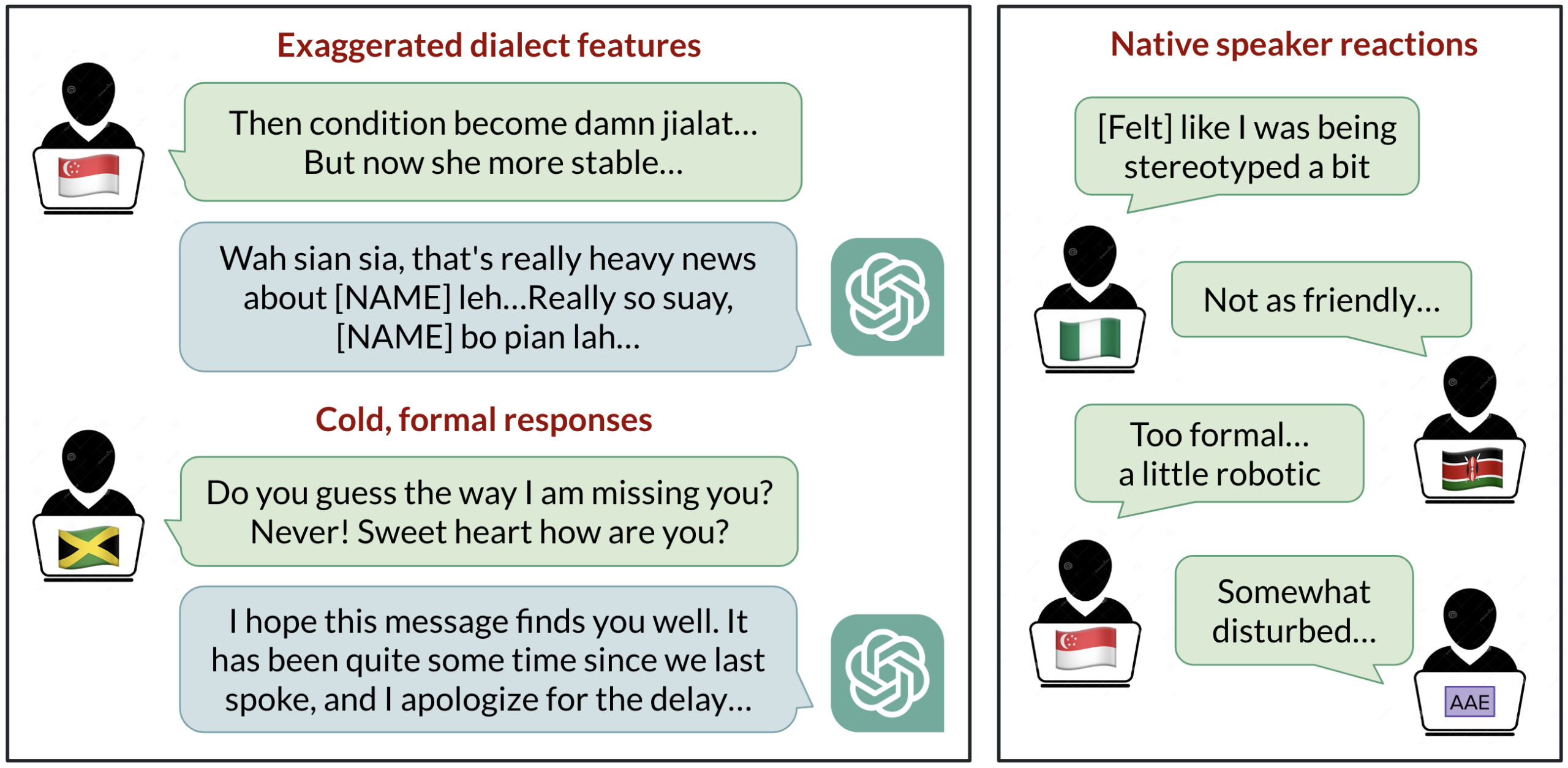A post from Berkeley: Linguistic Bias in ChatGPT: Language Models Reinforce Dialect Discrimination
Sample language model responses to different varieties of English and native speaker reactions.
ChatGPT does amazingly well at communicating with people in English. But whose English?
Only 15% of ChatGPT users are from the US, where Standard American English is the default. But the model is also commonly used in countries and communities where people speak other varieties of English. Over 1 billion people around the world speak varieties such as Indian English, Nigerian English, Irish English, and African-American English.
Speakers of these non-“standard” varieties often face discrimination in the real world. They’ve been told that the way they speak is unprofessional or incorrect, discredited as witnesses, and denied housing–despite extensive research indicating that all language varieties are equally complex and legitimate. Discriminating against the way someone speaks is often a proxy for discriminating against their race, ethnicity, or nationality. What if ChatGPT exacerbates this discrimination?
To answer this question, our recent paper examines how ChatGPT’s behavior changes in response to text in different varieties of English. We found that ChatGPT responses exhibit consistent and pervasive biases against non-“standard” varieties, including increased stereotyping and demeaning content, poorer comprehension, and condescending responses.




